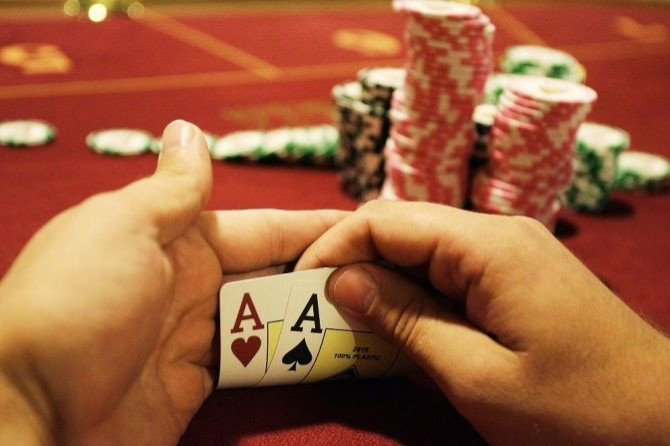A Brain Chemical That May Cause Gambling Addiction, or Bankruptcy

A chemical in the brain associated with regions involved in sensory and reward systems is important in determining how people deal with the pain of financial loss, scientists have revealed in a paper published on Tuesday in the Molecular Psychiatry journal.
Researchers said that the study, which may have revealed what was going on the brains of Wall Street traders as the 2008 financial crisis began, could potentially pave the way for the development of medications that could treat uncontrolled gamblers.b
The study revealed that norepinephrine or noradrenaline, which works as both a hormone and neurotransmitter, or chemical messenger, is central to an individual’s neurological response to losing money.
A team of researchers led by Hidehiko Takahashi of the Kyoto University graduate school of medicine in Japan conducted positron emission tomography (PET) scans on 19 participants who were healthy men, after they had completed a gambling task.
The scans showed that participants with lower levels of norepinephrine transporters, which are responsible for the reabsorption of extracellular norepinephrine, also had higher levels of the norepinephrine, which lead them to be less affected and sensitive to the pain of losing money.
Researchers found the opposite in participants with higher levels of those transporters who consequently had lower levels of norepinephrine. Those participants had what which researchers deemed as “loss aversion” because their emotional responses to losses were more magnified compared emotional responses to gains, and “loss aversion” varies widely between people, experts said.
Experts explained that although most people would only enter a two outcome gamble if there was more of a possibility to win more than they could lose, and people with lower levels of norepinephrine transporters and higher levels of norepinephrine showed reduced sensitivity to financial loss, and therefore were more prone to impaired decision making.
"We like to believe we all have free will and make whatever decisions we want to, but this shows it's not so easy," said Julio Licinio, editor of the Molecular Psychiatry journal, according to Reuters. "Many people have a predisposure to make certain kinds of decisions."
"Pathological gambling that happens at regular casinos is bad enough, but I think it's also happening a lot now at Casino Wall Street and Casino City of London," he added.
"This research uses sophisticated brain scanning to improve our understanding of the way that our appetite for risk is linked to the way that chemical messengers operate in the brain," Derek Hill, a professor of medical imaging science at University College London who was not involved in the research, told Reuters.
"It is quite preliminary work, but has many intriguing implications," he said, explaining that PET scans could potentially be used to treat people who indulge excessively in risky behavior.
Experts indicated that further research needs to be done to analyze known problem gamblers to confirm whether they do indeed have higher levels of these brain chemical transporters than non-gamblers.
"Also there is a need to investigate if noradrenaline transporters are also increased in brain regions traditionally associated with decision making and emotional aspects of aversion such as the prefrontal cortex and amygdala," Alexis Bailey, a lecturer in neuropharmacology at Britain's University of Surrey, told Reuters.
The U.S. Food and Drug Administration have currently not approved any prescription medications to treat pathological gambling. Most treatments for gambling addiction involves counseling, step-based programs, self-help, peer-support, some non-FDA approved medications like selective serotonin reuptake inhibitor Paroxetine or opioid receptor antagonist Nalmefene, or a combination of treatments.
Gamblers Anonymous, a common 12-step model that emphasizes a mutual-support approach and commonly used for people addicted to gambling, is modeled after Alcoholics Anonymous.
Published by Medicaldaily.com



























